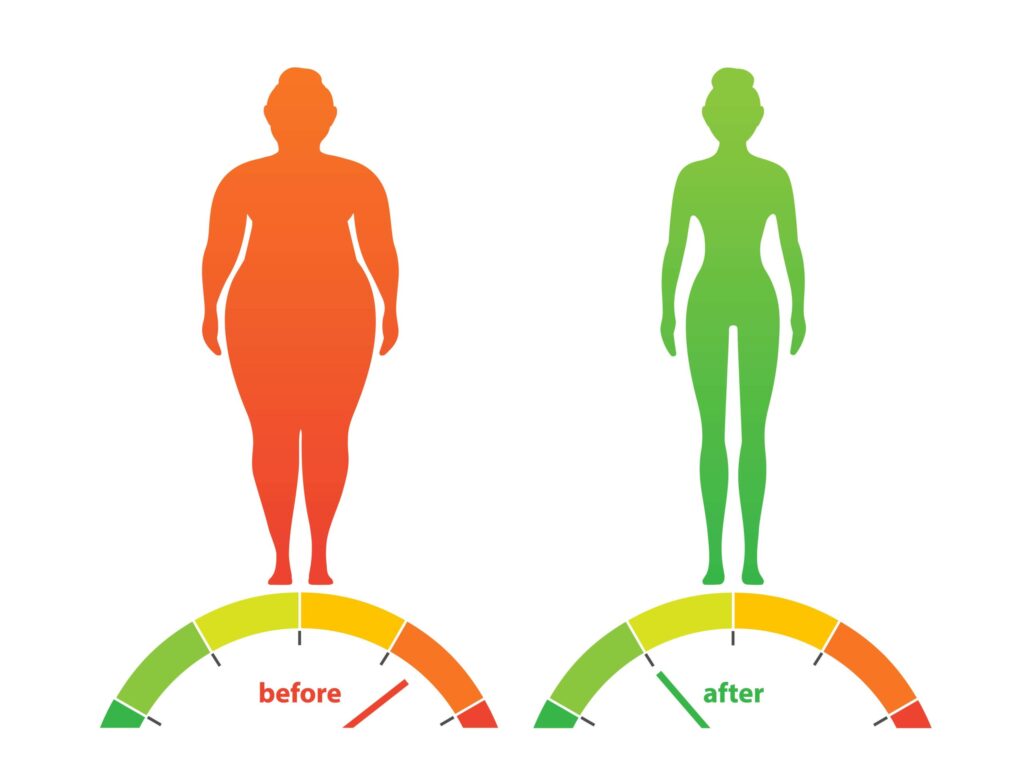Many people who are battling with depression or trying to quit smoking are prescribed bupropion, often known as Wellbutrin. While its primary goal is to improve mood and lessen nicotine cravings, studies have shown that it can also impact body weight.
Unlike many other antidepressants, which frequently promote weight gain, bupropion weight loss has become a popular issue among patients and doctors alike.
In this article, we’re going to look at how bupropion weight loss, its potential advantages and side effects, and if it’s an effective option for weight management.
How Does Bupropion Affect Weight?
Bupropion impacts brain neurotransmitters including dopamine and norepinephrine, which regulate mood, appetite, and energy levels. The medicine works by modulating these neurotransmitters to lower food cravings and boost activity, making weight management easier for some people.

Compared to many other antidepressants, bupropion is less likely to cause weight gain. In fact, multiple studies indicate that it may contribute to mild to moderate weight loss in certain people, especially when accompanied with healthy lifestyle modifications.
Advantages of Bupropion for Weight Loss
One of the primary advantages of bupropion is that it may help lower appetite and control food cravings, making it easier for people to manage their daily caloric intake.
It can also be especially beneficial for persons who have gained weight as a result of other antidepressant drugs, providing an alternative that promotes both mental wellness and weight management.
Furthermore, bupropion frequently increases mood and energy levels, encouraging people to be more physically active and consistent in their exercise regimen.
Another distinct advantage is that bupropion is widely prescribed for smoking cessation, thus it can assist patients stop smoking while also promoting better weight control.
Who Can Use Bupropion for Weight Loss?
Adults who struggle with weight gain as a result of other depression treatments, as well as those coping with both depression or anxiety and weight-related difficulties, may want to explore bupropion.
It is not meant for people who just desire to lose weight for no medical reason, as it is primarily a prescription drug for mental health and smoking cessation.
Most importantly, bupropion should always be administered and managed by a healthcare expert to ensure that it is safe and appropriate for each person’s requirements.
Side Effects and Risks of Bupropion
Bupropion, like any medicine, has potential side effects that should be evaluated before to usage. Some of the more typical adverse effects are sleeplessness, dry mouth, headache, and nausea, which may improve with time as the body adjusts.
However, substantial but uncommon hazards, such as seizures, might occur, particularly at higher doses or in those with pre-existing illnesses.
Bupropion is not suggested for those who have a history of eating disorders, seizures, or other health problems that raise the risk of consequences.
For these reasons, you should visit a doctor before using bupropion to ensure that it is safe and appropriate for your specific health situation.
Tips for Safe Use of Bupropion
To use bupropion safely, avoid self-prescription and always follow your doctor’s dose guidelines.
To achieve the best outcomes, the medicine should be taken with good lifestyle choices such as a balanced diet and frequent exercise, as these factors play an important role in long-term weight management.
Patients are also encouraged to note their weight changes and any adverse effects so that they can be discussed with a healthcare provider if necessary.
Finally, consistency is key, bupropion should not be abruptly stopped without medical assistance, as doing so can produce withdrawal effects or worsen symptoms.

Conclusion
Bupropion weight reduction is not guaranteed, but studies show that it can help some people manage their weight while also treating depression or helping them quit smoking.
It operates differently from other antidepressants, which often promote weight gain, making it a better option for some people. However, it is not a quick remedy nor a replacement for healthy behaviors.
Anyone thinking about taking bupropion for weight loss should talk to their doctor about the risks, benefits, and suitability. Remember that long-term benefits require a combination of appropriate medicine, food, exercise, and lifestyle modifications.

















